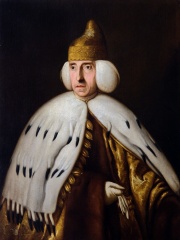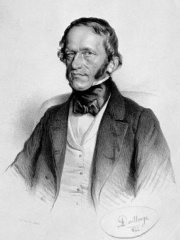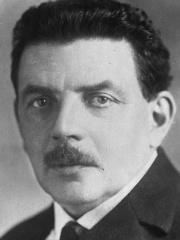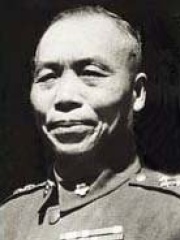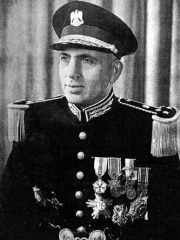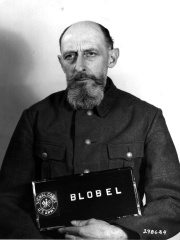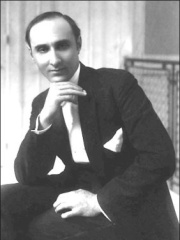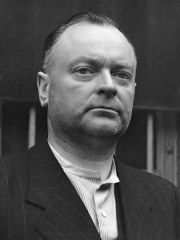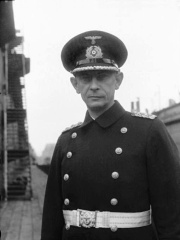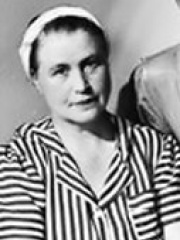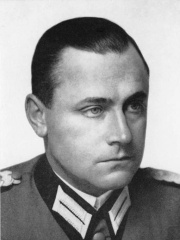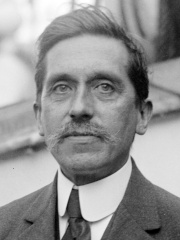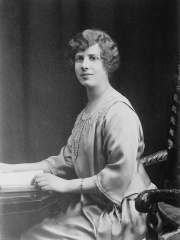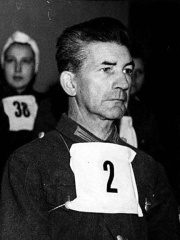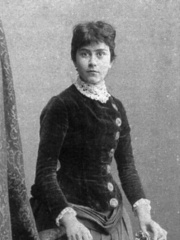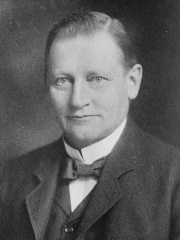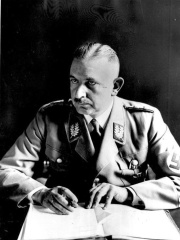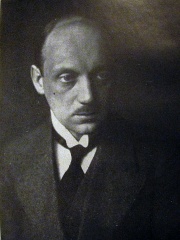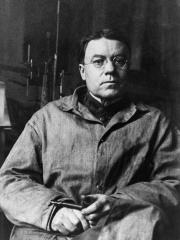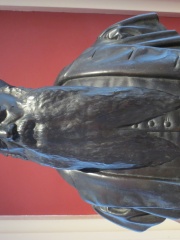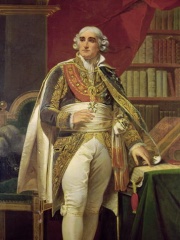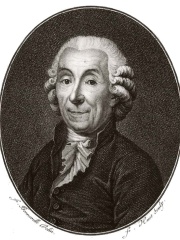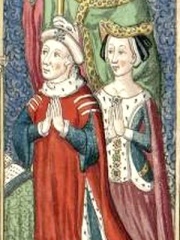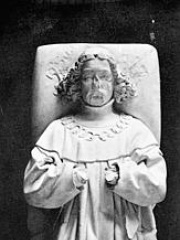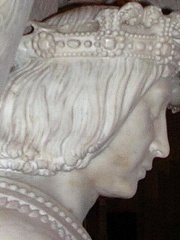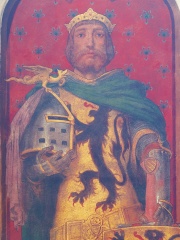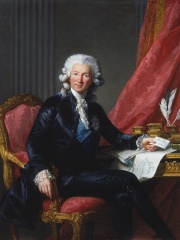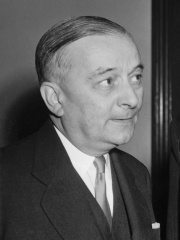POLITICIAN
Friedrich-Wilhelm Krüger
1894 - 1945

 Friedrich-Wilhelm Krüger
Friedrich-Wilhelm Krüger
Friedrich-Wilhelm Krüger (8 May 1894 – 10 May 1945) was a German paramilitary commander in charge of, and personally involved in progressive annihilation of the Polish nation, its culture, its heritage and its wealth, and never sentenced for his war crimes. Long before the war he was a high-ranking member of the SA and the SS. Between 1939 and 1943 he was the Higher SS and Police Leader in the General Government, giving him command of all police and security forces in German-occupied Poland. In this capacity, he organized and supervised numerous crimes against humanity and had major responsibility for the German genocide of the Polish nation: the extermination of six million Poles (three million of them Polish Jews) and massive destruction, degradation and impoverishment of the Polish state. He took his own life in May 1945. Read more on Wikipedia
His biography is available in 19 different languages on Wikipedia (up from 18 in 2024). Friedrich-Wilhelm Krüger is the 5,125th most popular politician (down from 4,633rd in 2024), the 1,476th most popular biography from France (down from 1,419th in 2019) and the 359th most popular French Politician.
Friedrich-Wilhelm Krüger was a German SS officer who served as the General Commissioner of the General Government in occupied Poland during World War II. He was responsible for the murder of tens of thousands of Polish Jews and Poles.
Memorability Metrics
Page views of Friedrich-Wilhelm Krüger by language
Among POLITICIANS
Among politicians, Friedrich-Wilhelm Krüger ranks 5,125 out of 19,576. Before him are George Akropolites, Ludovico Manin, František Palacký, Emperor Wuzong of Tang, Édouard Herriot, and Anna of Trebizond. After him are Enrico Berlinguer, Li Zongren, Adib Shishakli, Munjong of Goryeo, Bill Weld, and Hugo Banzer.
Most Popular Politicians in Wikipedia
Go to all RankingsGeorge Akropolites
1217 - 1282
HPI: 66.39
Rank: 5,121
Ludovico Manin
1725 - 1802
HPI: 66.39
Rank: 5,122
František Palacký
1798 - 1876
HPI: 66.39
Rank: 5,123
Emperor Wuzong of Tang
814 - 846
HPI: 66.39
Rank: 5,124
Édouard Herriot
1872 - 1957
HPI: 66.39
Rank: 5,125
Anna of Trebizond
1350 - 1342
HPI: 66.38
Rank: 5,126
Friedrich-Wilhelm Krüger
1894 - 1945
HPI: 66.38
Rank: 5,127
Enrico Berlinguer
1922 - 1984
HPI: 66.38
Rank: 5,128
Li Zongren
1890 - 1969
HPI: 66.38
Rank: 5,129
Adib Shishakli
1909 - 1964
HPI: 66.38
Rank: 5,130
Munjong of Goryeo
1019 - 1083
HPI: 66.38
Rank: 5,131
Bill Weld
1945 - Present
HPI: 66.38
Rank: 5,132
Hugo Banzer
1926 - 2002
HPI: 66.38
Rank: 5,133
Contemporaries
Among people born in 1894, Friedrich-Wilhelm Krüger ranks 53. Before him are Kōnosuke Matsushita, Norman Rockwell, Paul Blobel, Dimitri Tiomkin, Bessie Smith, and Leo Kanner. After him are Anton Mussert, Percy Spencer, Ernst Lindemann, Aino Aalto, Américo Tomás, and Walter Warlimont. Among people deceased in 1945, Friedrich-Wilhelm Krüger ranks 97. Before him are Charles Fabry, Princess Maud, Countess of Southesk, Josef Čapek, Pierre Drieu La Rochelle, Fritz Klein, and Hans Kammler. After him are Else Lasker-Schüler, Albrecht Penck, Roza Shanina, Bernhard Rust, Georg Kaiser, and Walter Bradford Cannon.
Others Born in 1894
Go to all RankingsKōnosuke Matsushita
INVENTOR
1894 - 1989
HPI: 67.71
Rank: 47
Norman Rockwell
PAINTER
1894 - 1978
HPI: 67.57
Rank: 48
Paul Blobel
POLITICIAN
1894 - 1951
HPI: 67.54
Rank: 49
Dimitri Tiomkin
COMPOSER
1894 - 1979
HPI: 67.29
Rank: 50
Bessie Smith
SINGER
1894 - 1937
HPI: 67.23
Rank: 51
Leo Kanner
POLITICIAN
1894 - 1981
HPI: 66.98
Rank: 52
Friedrich-Wilhelm Krüger
POLITICIAN
1894 - 1945
HPI: 66.38
Rank: 53
Anton Mussert
POLITICIAN
1894 - 1946
HPI: 66.22
Rank: 54
Percy Spencer
INVENTOR
1894 - 1970
HPI: 65.82
Rank: 55
Ernst Lindemann
MILITARY PERSONNEL
1894 - 1941
HPI: 65.71
Rank: 56
Aino Aalto
ARCHITECT
1894 - 1949
HPI: 65.64
Rank: 57
Américo Tomás
POLITICIAN
1894 - 1987
HPI: 65.55
Rank: 58
Walter Warlimont
POLITICIAN
1894 - 1976
HPI: 65.35
Rank: 59
Others Deceased in 1945
Go to all RankingsCharles Fabry
PHYSICIST
1867 - 1945
HPI: 66.79
Rank: 91
Princess Maud, Countess of Southesk
NOBLEMAN
1893 - 1945
HPI: 66.62
Rank: 92
Josef Čapek
WRITER
1887 - 1945
HPI: 66.61
Rank: 93
Pierre Drieu La Rochelle
WRITER
1893 - 1945
HPI: 66.58
Rank: 94
Fritz Klein
PHYSICIAN
1888 - 1945
HPI: 66.54
Rank: 95
Hans Kammler
ENGINEER
1901 - 1945
HPI: 66.40
Rank: 96
Friedrich-Wilhelm Krüger
POLITICIAN
1894 - 1945
HPI: 66.38
Rank: 97
Else Lasker-Schüler
WRITER
1869 - 1945
HPI: 66.10
Rank: 98
Albrecht Penck
GEOGRAPHER
1858 - 1945
HPI: 66.01
Rank: 99
Roza Shanina
MILITARY PERSONNEL
1924 - 1945
HPI: 66.00
Rank: 100
Bernhard Rust
POLITICIAN
1883 - 1945
HPI: 65.98
Rank: 101
Georg Kaiser
WRITER
1878 - 1945
HPI: 65.90
Rank: 102
Walter Bradford Cannon
PSYCHOLOGIST
1871 - 1945
HPI: 65.74
Rank: 103
In France
Among people born in France, Friedrich-Wilhelm Krüger ranks 1,476 out of 6,770. Before him are François Rude (1784), Jean Jacques Régis de Cambacérès (1753), Gabriel Bonnot de Mably (1709), Louis, Count of Vendôme (1376), Germaine Tailleferre (1892), and Édouard Herriot (1872). After him are Charles I, Duke of Bourbon (1401), André-Louis Debierne (1874), Catherine Spaak (1945), Bernard Tapie (1943), Jean Chacornac (1823), and Louis Jourdan (1921).
Others born in France
Go to all RankingsFrançois Rude
SCULPTOR
1784 - 1855
HPI: 66.41
Rank: 1,470
Jean Jacques Régis de Cambacérès
POLITICIAN
1753 - 1824
HPI: 66.40
Rank: 1,471
Gabriel Bonnot de Mably
POLITICIAN
1709 - 1785
HPI: 66.40
Rank: 1,472
Louis, Count of Vendôme
NOBLEMAN
1376 - 1446
HPI: 66.40
Rank: 1,473
Germaine Tailleferre
COMPOSER
1892 - 1983
HPI: 66.39
Rank: 1,474
Édouard Herriot
POLITICIAN
1872 - 1957
HPI: 66.39
Rank: 1,475
Friedrich-Wilhelm Krüger
POLITICIAN
1894 - 1945
HPI: 66.38
Rank: 1,476
Charles I, Duke of Bourbon
COMPANION
1401 - 1456
HPI: 66.38
Rank: 1,477
André-Louis Debierne
CHEMIST
1874 - 1949
HPI: 66.38
Rank: 1,478
Catherine Spaak
ACTOR
1945 - 2022
HPI: 66.38
Rank: 1,479
Bernard Tapie
POLITICIAN
1943 - 2021
HPI: 66.37
Rank: 1,480
Jean Chacornac
ASTRONOMER
1823 - 1873
HPI: 66.37
Rank: 1,481
Louis Jourdan
ACTOR
1921 - 2015
HPI: 66.36
Rank: 1,482
Among POLITICIANS In France
Among politicians born in France, Friedrich-Wilhelm Krüger ranks 359. Before him are Bernard of Italy (797), Francis II, Duke of Brittany (1435), Robert III, Count of Flanders (1249), Jean Jacques Régis de Cambacérès (1753), Gabriel Bonnot de Mably (1709), and Édouard Herriot (1872). After him are Bernard Tapie (1943), Charles Alexandre de Calonne (1734), Chilperic of Aquitaine (600), Georges Bidault (1899), Philippe de Gaulle (1921), and Infanta Pilar, Duchess of Badajoz (1936).
Bernard of Italy
797 - 818
HPI: 66.48
Rank: 353
Francis II, Duke of Brittany
1435 - 1488
HPI: 66.43
Rank: 354
Robert III, Count of Flanders
1249 - 1322
HPI: 66.43
Rank: 355
Jean Jacques Régis de Cambacérès
1753 - 1824
HPI: 66.40
Rank: 356
Gabriel Bonnot de Mably
1709 - 1785
HPI: 66.40
Rank: 357
Édouard Herriot
1872 - 1957
HPI: 66.39
Rank: 358
Friedrich-Wilhelm Krüger
1894 - 1945
HPI: 66.38
Rank: 359
Bernard Tapie
1943 - 2021
HPI: 66.37
Rank: 360
Charles Alexandre de Calonne
1734 - 1802
HPI: 66.34
Rank: 361
Chilperic of Aquitaine
600 - 632
HPI: 66.27
Rank: 362
Georges Bidault
1899 - 1983
HPI: 66.27
Rank: 363
Philippe de Gaulle
1921 - 2024
HPI: 66.24
Rank: 364
Infanta Pilar, Duchess of Badajoz
1936 - 2020
HPI: 66.22
Rank: 365

